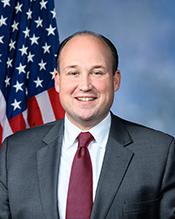H.R. 3548: Infrastructure Expansion Act of 2025
The Infrastructure Expansion Act of 2025 aims to modify legal liability related to injury claims on infrastructure projects that receive federal financial assistance. Here’s a breakdown of the key provisions:
Short Title
This legislation may be referred to as the Infrastructure Expansion Act of 2025.
No Absolute Liability on Certain Projects
For any infrastructure project that receives federal financial aid or tax benefits, the bill states that there can be no actions based on absolute liability against a property owner or contractor for injuries related to elevation or gravity-related risks. This means that if someone is injured in such a project, the property owner or contractor cannot be held liable without considering the injured party's actions or negligence.
Comparative Negligence Liability Standard
The bill establishes a comparative negligence standard for claims on these projects:
- States cannot apply absolute liability for elevation or gravity-related risks.
- When claiming injuries related to such risks, a comparative negligence approach will be applied, meaning fault will be assessed to determine liability based on each party's contribution to the injury.
This applies specifically when negligence from a covered person has contributed to an injury, and where the state laws would typically impose absolute liability.
Federal Preemption
The act will override any state laws imposing absolute liability in the same context, requiring states to adopt the comparative negligence standards for claims arising from federally assisted projects.
Federal Court Jurisdiction
All claims related to this act will be heard exclusively in federal courts, which prevents state courts from applying absolute liability standards for these projects.
Definitions
Several terms are defined for clarity in this legislation:
- Absolute liability: Liability for injuries that does not consider the injured party's responsibility or behavior, even if their actions contributed to the injury.
- Covered person: An individual who supervises, performs work, or is otherwise connected to the project.
- Elevation or gravity-related risk: Hazards linked to differences in elevation or the effects of gravity, such as someone falling from a height during work.
- Federal financial assistance: Any funding, including loans or grants, provided by the federal government for infrastructure or transportation projects.
- Project: Includes construction, alteration, repair, or maintenance of roads, airports, bridges, and other transport-related infrastructures.
- State: Encompasses various local government entities and agencies.
Workers’ Compensation Laws
The act does not change state laws regarding workers’ compensation, meaning those laws will still apply regardless of this bill's provisions.
Effective Date
The stipulations of this act would apply to claims arising from projects after January 1, 2026, if a state or local government accepts federal financial assistance for those projects.
Relevant Companies
None found
This is an AI-generated summary of the bill text. There may be mistakes.
Sponsors
4 bill sponsors
Actions
2 actions
| Date | Action |
|---|---|
| May. 21, 2025 | Introduced in House |
| May. 21, 2025 | Referred to the House Committee on the Judiciary. |
Corporate Lobbying
0 companies lobbying
None found.
* Note that there can be significant delays in lobbying disclosures, and our data may be incomplete.
Potentially Relevant Congressional Stock Trades
No relevant congressional stock trades found.



